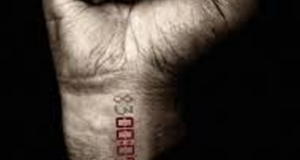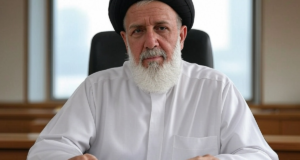A similar study earlier this year found that Palestinian youths holed up inside Al-Aqsa Mosque with fireworks, firebombs, and rocks to hurl at Israeli police and tourists were seventeen times as likely to express a negative opinion of Jews.
 Nazareth, October 12 – A scientific survey has found indications that Arabs who attack Jews by attempting to stab them are less likely to support Jewish-Arab coexistence, the journal Nature reported today.
Nazareth, October 12 – A scientific survey has found indications that Arabs who attack Jews by attempting to stab them are less likely to support Jewish-Arab coexistence, the journal Nature reported today.
A study of the target population found what scientists called a “very strong correlation” between perpetration of a stabbing attack on Jews and a low regard for the ideal of Jews and Arabs living in the same country and getting along, or at least leaving each other alone. Of those surveyed, a stabber or would-be-stabber was nine times more likely than the average respondent to harbor a negative opinion of coexistence, and eighty-four times more likely to have incurred a bullet wound.
Avi Uss, lead author of the study, cautioned that while the correlation was indeed robust, the rule remains that correlation does not equal causation. “The cause and effect here may be much more complex than a cursory look at the data would seem to show,” he warned. “There might well be an underlying factor accounting for both of these statistics. We cannot justifiably jump to the conclusion that just because someone opposes coexistence, he or she will suddenly try to stab a Jew – or, indeed, that someone who attempts to stab a Jew to death will thereby become an opponent of coexistence.”
Uss noted that any number of such underlying causes could lead to both results without there being an inherent connection between opposition to coexistence and having perpetrated a stabbing attack on a Jew. “There could be environmental factors in play here that explain both phenomena. Further study is certainly warranted here,” he concluded.
A similar study earlier this year found that Palestinian youths holed up inside Al-Aqsa Mosque with fireworks, firebombs, and rocks to hurl at Israeli police and tourists were seventeen times as likely to express a negative opinion of Jews.
Taken together, says sociologist Ayuz Weaselwords of Bir Zeit University, the two surveys point to an important trend. “What these studies both show is how hard it can be to pinpoint what exactly is driving this widespread social movement of stabbing Jews,” she explained. “Many of us in the social sciences and humanities are still looking for that elusive missing link that might explain why people who are so thoroughly resolved to plunge a blade into the chest or neck of a Jew also happen not to be particularly enamored of the notion that Jews and Arabs – or Jews and Muslims, but for purposes of these studies the populations were the same – might live a mutually tolerant existence.”
“Now if you’ll excuse me, I must accompany several senior Fatah officials who will pay their respects to the parents of a Palestinian youth killed in such an attempt,” she said.




